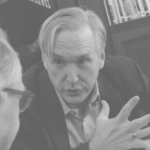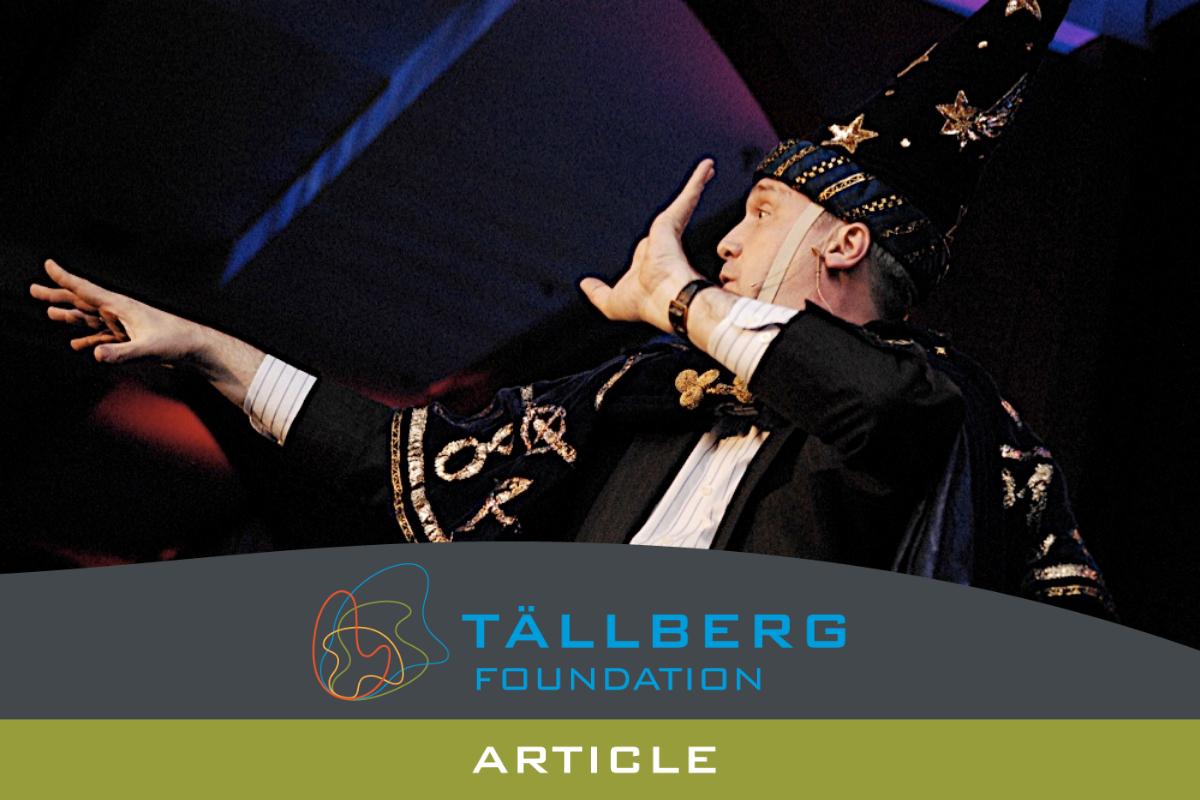Since the onset of the pandemic, most people have been forced to put their lives on hold or online. Work, education, entertainment, exercise—almost everything has largely moved from the real world to the virtual world. One result is near universal groans about “Zoom fatigue.”
But is it the tool or how we are using the tool? Mark Mitton is a world-class, “close up” magician whose magic, he says, “works best when the audience feels like they are truly changing the performance, and miracles suddenly are happening before their eyes. “One way to think of it is that it’s an interdependent communication model that’s very sophisticated, because it goes from tracking audiences who are just bored or confused to audiences who are just flabbergasted and in complete shock and wonder.” Is there more to a successful Zoom session than simply pressing “join?”
So what does a master of that kind of art do when a pandemic forces him to move from intense interaction and engagement with his audience to working through a “cold” medium like a computer screen? And can the rest of us learn any tricks from him that will help us cope while we are stuck in this virtual world?
In a recent episode of Tällberg’s “New Thinking for a New World” Mitton detailed some of the lessons he has learned over the past year of online trial and error.
-
- EXPERIMENT: “I have a lot of magician colleagues, and I noticed that some of them jumped immediately onto shows for children. That was really brilliant because children demand interaction, and they’re really good at giving feedback.”
-
- PLAN: “What tools do I need? How can I change my camera? How can I change my lighting? How can I change my microphone? Can I get a background stream in Discord or Slack or a What’s App?…One thing that I insist upon is having some kind of extra stream of communication with the other presenters or the people organizing the event.”
-
- PREPARE FOR FAILURE: “When something goes wrong, what do you do now? And normally I walk on stage with a very large array of emergency backups…in this kind of communication, it’s so new that we all need backups. We need that plan, but we also need to write the counter plan. What if this isn’t effective? What if my audience is bored? Then what?”
-
- UNDERSTAND THE TOOLS: “It’s really important to understand these tool sets, like what a webinar is and what a speaker setting is and what a meeting setting is and how we can use these to maximum effect.
-
- PRACTICE: “It is great to have a place to be bad, a place to hit the button on Zoom and have it not work or go to hit your volume button and no one hears you. And if you’re with friends, that’s not so bad. And actually, what’s great is if you just have a five-person call, you’ll learn all the skills that you need to run a 300-person meeting.”
-
- MISTAKES ARE OK: “If you’re looking for interaction and problems happen, that’s not bad because people know that it’s live, and that communicates its own power.…I did an online show with a Broadway cast recently. The most powerful moment in the whole show was when a singer’s backing track went out, and he just sang his heart out. And suddenly you’re in this intimate situation with a Broadway singer.”
-
- POST MORTEMS: “You actually need to put as much effort into getting the feedback to make the extra call afterwards to say, ‘How can we do that better next time?’…The big thing is to open ourselves up and be very frank about our mistakes.”
-
- STUDY WHAT WORKS: “There’s a lot of homework to be done to present on camera…”
Mitton the master magician learned his craft from great magicians like Quintino Marucci (who performed as Slydini) and Oscar Malini (Ozzie, son of Max Malini). Now—like the rest of us—he needs to learn the craft of communicating online. Who are the masters of this new medium? Mitton cites everyone from politicians and tele-ministers to Twitch streamers. “I’ve been studying the Twitch streamers who play games online very carefully because they understand streaming video through the Internet better than anyone I’ve seen. They also have the excitement of the game that they need to catch up. They’re also tech savvy.”
The point, of course, is that creating and executing a successful online meeting or a lecture—or even a date—requires more than good bandwidth. It requires a lot of work and a whole different skillset: Mitton insists that living on camera is different and requires different thinking!
For example:
-
- “I constantly compare where we are right now with Zoom communication and other platforms to movies in the 1890s and television in the late ’40s, early ’50s. Actually, I’ve gone back and watched. For magicians, we all know that George Melies in Paris, really quickly conquered the field [of film]. His specialty was the magic play, so he was used to combining special effects with story, and it put him in an incredible place to consider film. So he gets credit for creating the special effect…understanding what an effect is, what counts, what doesn’t count, what moves an interaction forward, what doesn’t.”
Or, quite differently:
-
- “Jack Benny (American entertainer): he’d actually sit there like a football announcer describing a play… he would sit there at the television as Jackie Gleason and his whole crew were making plays, and he would be drawing the play. And he’d explain, ‘What you’re watching is the tradition of burlesque.’ The reason that Jackie doesn’t need to rehearse, like he famously didn’t, was because they know these plays. Right now, they’re doing this one. Let me show you, Benny would say.”
-
- “Another great example is Bob Hope (American film comedian and actor) because he goes from stage to radio. His laughs per minute are amazing. Comedians think in terms of how many laughs are you getting per minute, the equivalent of a magician’s beat or effect. And if you listen to him on radio, it’s amazing. And then he does television…He’s already a film star by then. And then he never gave up live performing.”
Melies to Benny to Gleason to Hope? Mitton’s point is that Zoom is essentially a new medium and, if we want to use it effectively, we ought to look at how others have explored and exploited emerging media in the past.
At the end of the day Mitton’s message is that effective online communication requires conscious effort: “I’m actually thinking of that all the time on Zoom. How can I learn just a little bit more about what worked and what didn’t work?”
In other words, great Zoom doesn’t just happen; it takes a lot of preparation, thought and effort to teach, meet or even make magic online.
Let us know what YOU think and leave your comment below
Mark Mitton recently spoke with Alan Stoga as part of the Tällberg Foundation’s “New Thinking for a New World” podcast series. Hear their whole conversation here or find us on a podcast platform of your choice (Apple Podcast, Spotify, Acast, Stitcher, Libsyn, etc).
ABOUT OUR GUEST
 Mark Mitton is a magician who is fascinated by using magic to better understand how we see the world. In addition to performing and producing events all over the world, Mark explores the theme of “Misdirection” from an interdisciplinary standpoint and regularly presents on “Perception” at universities and conferences. He was the apprentice to legendary sleight-of-hand master Slydini, and he has lectured with the late Nobel laureate Dr. Gerald Edelman of The Neurosciences Institute.
Mark Mitton is a magician who is fascinated by using magic to better understand how we see the world. In addition to performing and producing events all over the world, Mark explores the theme of “Misdirection” from an interdisciplinary standpoint and regularly presents on “Perception” at universities and conferences. He was the apprentice to legendary sleight-of-hand master Slydini, and he has lectured with the late Nobel laureate Dr. Gerald Edelman of The Neurosciences Institute.





0 Comments